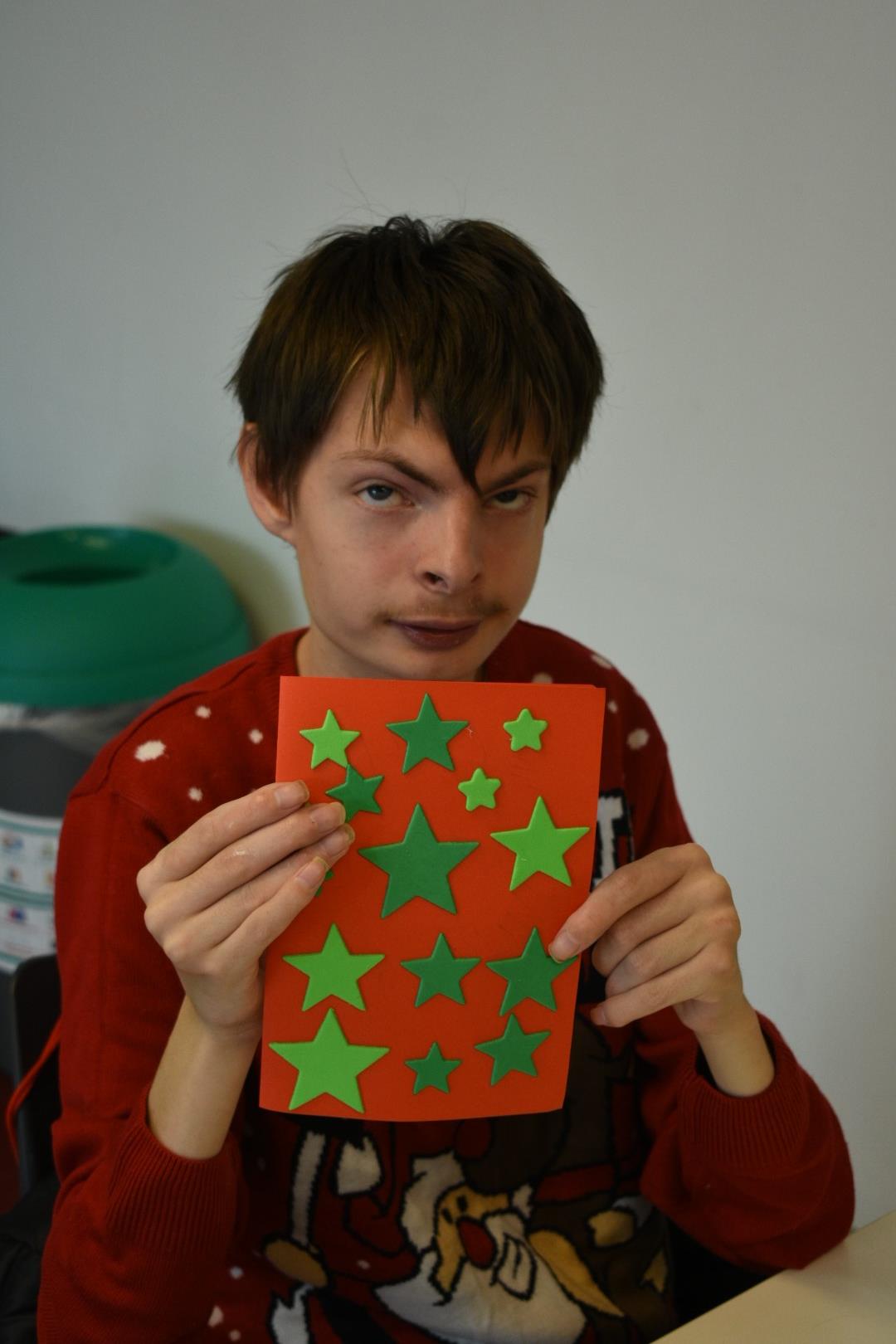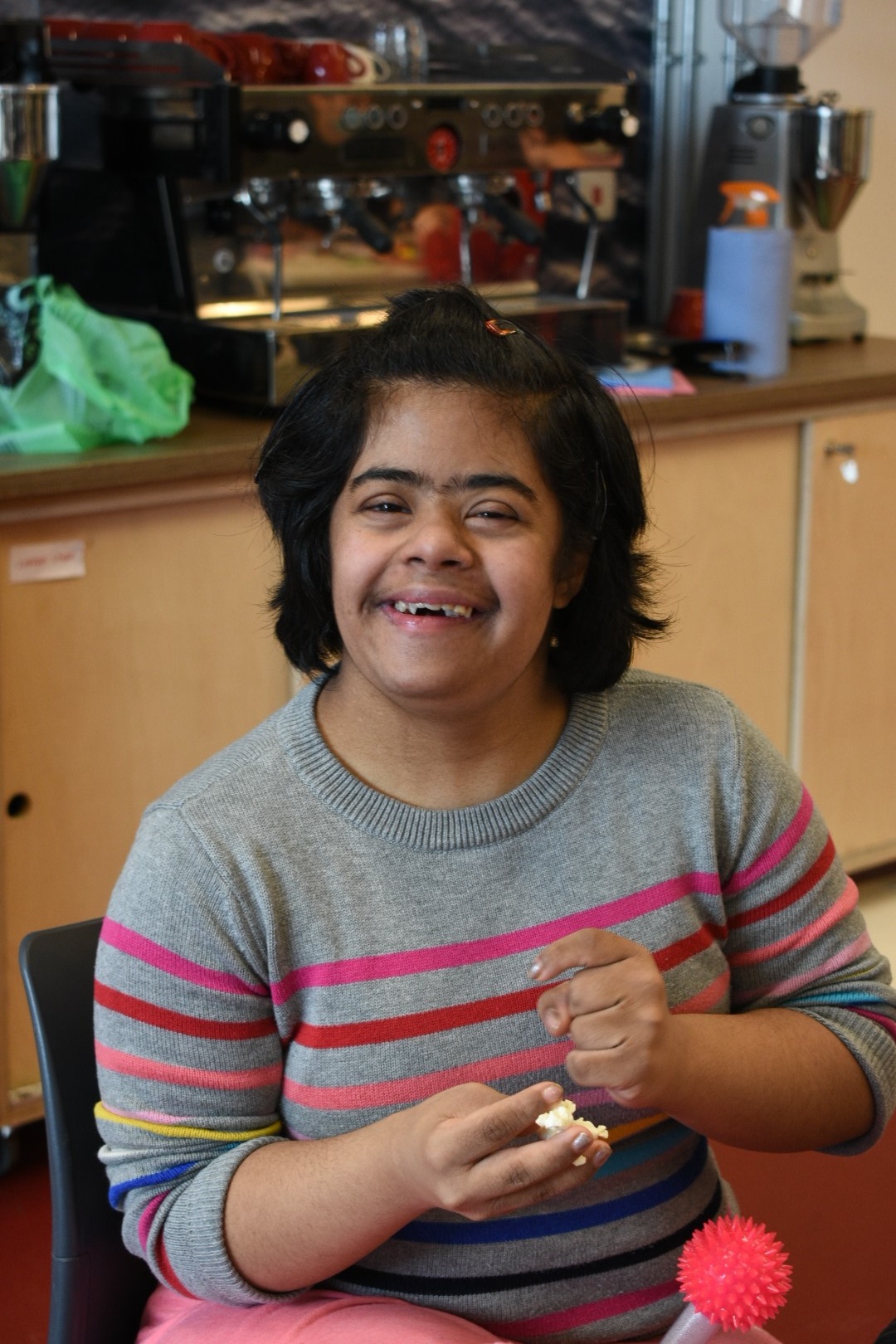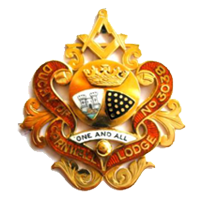FREEMASONRY SUPPORT FOR YOUNG PEOPLE BUDDY PROJECT
W Bro John Little SLGR reports
A donation of £10,000 from The London Freemasons’ Charity is being used to support 14-25 year olds with complex disabilities in London to build friendships for life.
The Sense Buddy programme operates in Hackney, Tower Hamlets and Newham. It’s for young people who have combinations of physical disabilities, learning disabilities, sensory impairments and/or autism.
Each year, Sense matches around 60 disabled young people with a new friend, also known as their Buddy. Bonding with their Buddy helps these young people to develop independence, social skills and connections, and move forward into adulthood.
Set up in 1955 by a group of mums to children who were born deafblind (with a combination of hearing and visual impairments), Sense today supports people with a range of complex disabilities.

The needs of participants
The Sense Buddy programme takes place in parts of London that have a high rate of poverty and targets households with experience of unemployment, poverty, unstable housing and poor mental health. Their young people are mostly not in education, employment or training, and need full-time care.
Most lack aspirations and confidence about their future, and their families often share these feelings of uncertainty and isolation.

Participants also face deep-seated loneliness and disconnection from their community and peers. The Jo Cox Loneliness Commission reported that 77% of disabled young people feel lonely on a typical day. Most are reliant on parents to go out and have few opportunities to meet peers.
Loneliness can cause a decline in physical and mental health, making young people less likely to join activities. Participants are some of the most vulnerable young people in London.
Dominique Muller, the Sense Trusts Manager, explains:
“We support them to prepare for the transition to adult services as most find it very hard due to their lack of independence and difficulty coping with change. Many also lack formal communication so, too often, the only people who understand what they are communicating are family members. It is not rare for professionals in adult services to under-estimate the young people and give them limited options for what to do day-to-day, so it’s hard for parents to find the best adult services for their child’s needs, and abilities.
“Sense is the only support these isolated young people can rely on. We offer them a Sense-trained Buddy for a year to increase their opportunities to explore and participate in activities in their community, meet new people, raise their confidence, improve their communication, and be empowered to overcome barriers to accessing services.”
How the project works
The Buddy pairs aim to meet up twice a month and there are group sessions run by Sense staff and community providers.
Buddies are vetted and trained by Sense, including specialist training according to the young person’s needs, such as dealing with epileptic seizures.
The first few visits are supervised by Sense staff, and the Buddy pair only meets one-to-one when both are ready. The unique value of Buddies is that they can form an equal relationship with the young people: unlike in a professional relationship, both choose to spend time with each other, equally.
The pair are introduced to local activity providers for sports, arts, leisure and social development, and other interests they may have. Examples include trampolining, dancing, Comic-Con events, puppet-making, pottery, foam play, food festivals, reading clubs, non-contact boxing, kite flying, lip-sync battles, performance and cooking classes.

Dominique continues: “Families are often surprised by what their child can do with the right support and re-evaluate what might be possible, raising aspirations for the whole family.
“Families also benefit from information on transition and relevant supported housing and education services. Parents gain respite time and, when their young person is sufficiently confident to attend day opportunities, may be able to seek employment.
“For their part, Buddies and local service providers experience, and learn from, what disabled people can achieve when they receive the correct support. Providers have become more confident and knowledgeable and made their offers more inclusive – a lasting legacy in the community.
“We are very grateful to London Freemasonry for their generous donation. We are also looking for more volunteers as Buddies. Anyone interested please email me at


This article is part of the Arena Magazine, Issue 51 December 2022 edition.
Arena Magazine is the official magazine of the London Freemasons – Metropolitan Grand Lodge and Metropolitan Grand Chapter of London.
Read more articles in the Arena Issue 51 here.
